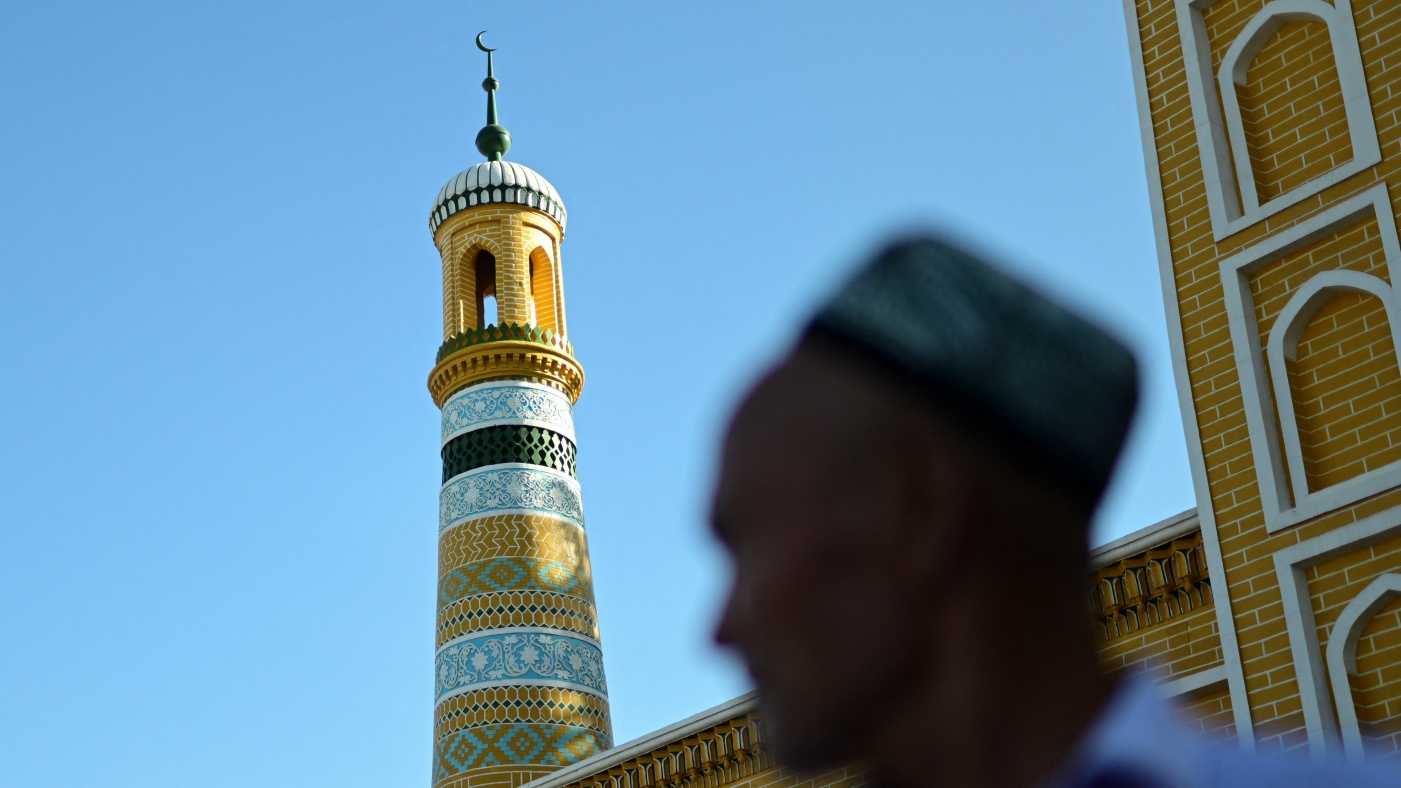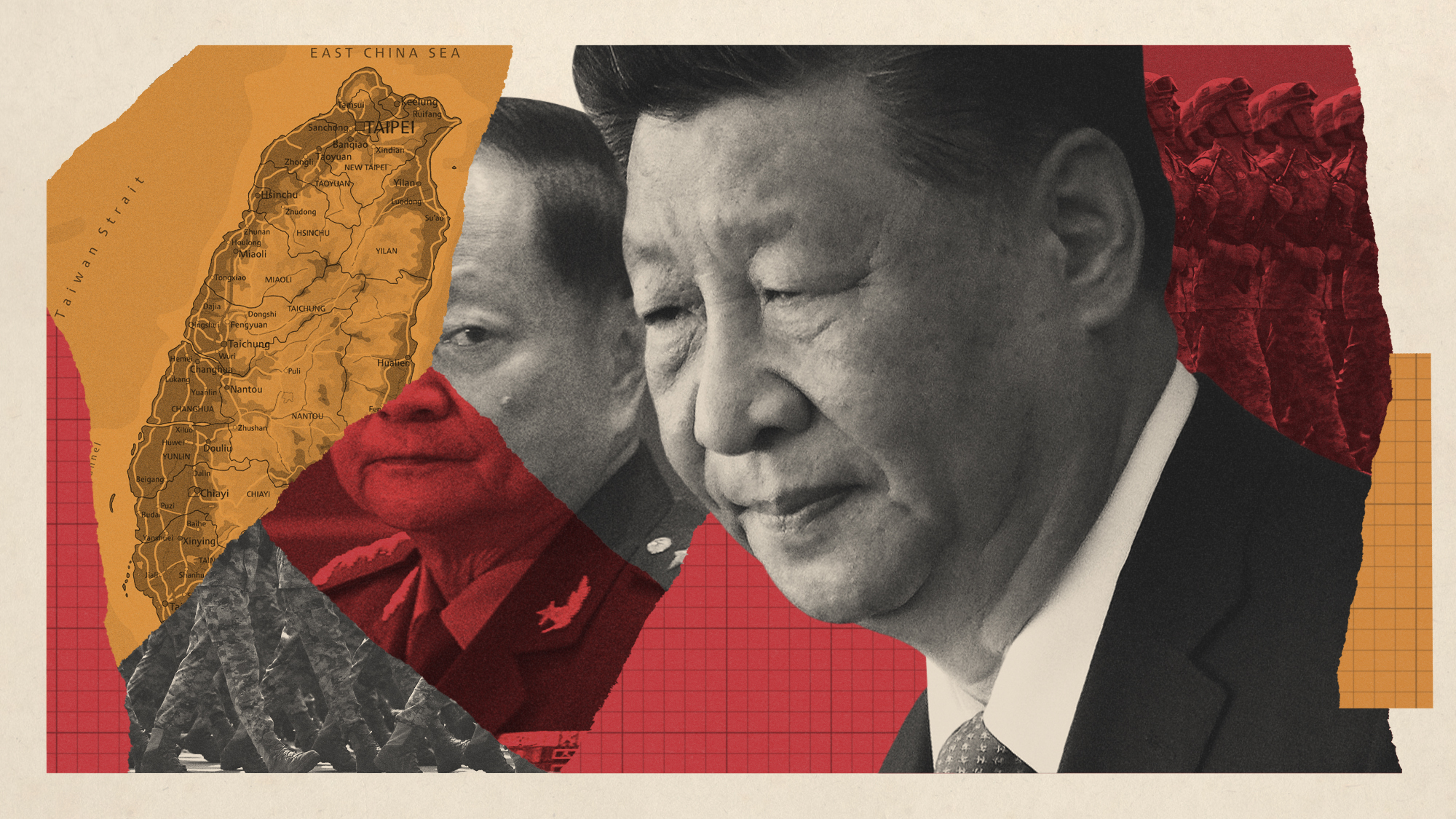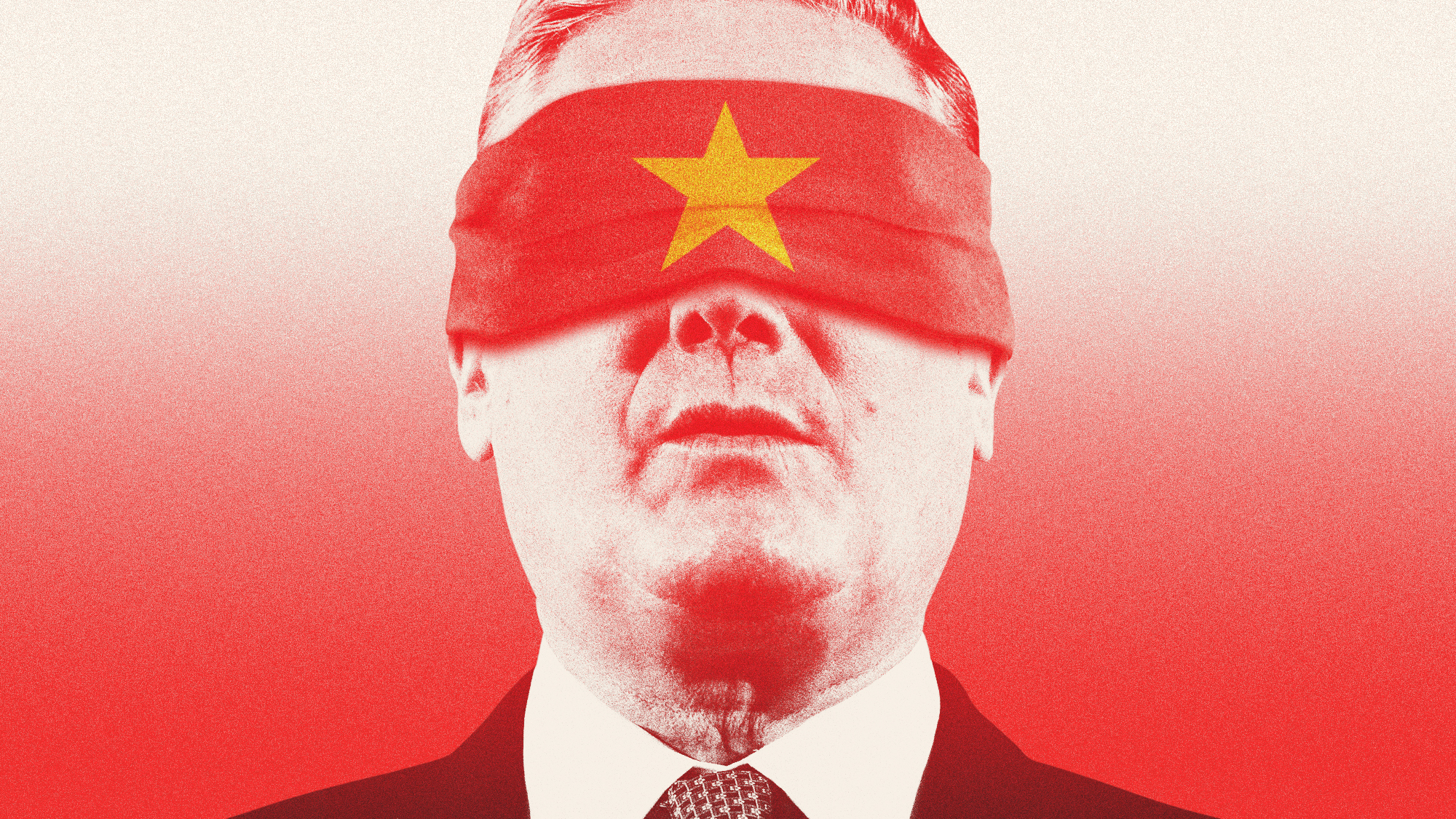Three-quarters of mosques in China have been altered or destroyed
Chinese authorities step up Xi Jinping's "sinicization" policy by removing Islamic architecture

A free daily email with the biggest news stories of the day – and the best features from TheWeek.com
You are now subscribed
Your newsletter sign-up was successful
Chinese authorities have altered, closed or partially demolished thousands of mosques across China in a suppression of Islamic culture that has spread to almost every region of the country.
Beijing's Doudian Mosque, once among the grandest in northern China, has undergone significant alterations this year, with "its minarets… removed, its domes replaced with pagoda-style cones and its Arab-style arches squared off", reported the Financial Times (FT).
These changes, however, appear to be part of a more extensive crackdown on Islamic religious sites over the past five years.
The Week
Escape your echo chamber. Get the facts behind the news, plus analysis from multiple perspectives.

Sign up for The Week's Free Newsletters
From our morning news briefing to a weekly Good News Newsletter, get the best of The Week delivered directly to your inbox.
From our morning news briefing to a weekly Good News Newsletter, get the best of The Week delivered directly to your inbox.
'Three-quarters' of China's mosques altered or destroyed
Based on satellite images, the FT investigation has revealed that thousands of mosques have undergone modifications in "a widespread policy of stripping buildings of Arabic features". Changes to mosques have been made "in every region" of China, including both rural and urban areas.
Activists fear that the changes reflect a "broader suppression of Islamic culture" in China, said the paper. "This is the start of the end of Islam in China," warned Ma Ju, a US-based campaigner for Chinese Muslim rights.
According to the FT, an analysis of 2,312 mosques with Islamic architecture found that three-quarters of them have been modified or destroyed since 2018. Satellite imagery shows at least 1,714 buildings altered, stripped or destroyed.
Government officials have said that these changes aim to "harmonise" mosques with Chinese culture and "foster economic development" in areas such as Xinjiang. But "modifications have been most prevalent in regions with the highest population of ethnic groups that traditionally practise Islam", the paper reported.
A free daily email with the biggest news stories of the day – and the best features from TheWeek.com
The investigation follows reports from Human Rights Watch and the Australian Strategic Policy Institute, which have highlighted the destruction and alteration of mosques in Xinjiang, noting an alarming escalation in alterations since 2017. But the FT's investigation casts new light on the "scale and spread" of China's destruction of mosques.
'Sinicization' of religion in China
While China's constitution says that ordinary citizens have "freedom of religious belief" in the country, in 2016 President Xi Jinping called for the "sinicization" of religion in China, a policy which "requires religious groups to align their doctrines, customs and morality with Chinese culture", according to the Pew Research Center.
The policy particularly affects "so-called 'foreign' religions" such as Islam, Catholicism and Protestantism, whose adherents "are expected to prioritise Chinese traditions and show loyalty to the state".
In 2018, the Chinese Communist Party's (CCP) central committee published a document that referred to the "control and consolidation" of mosques, said the BBC.
It urged state agencies to "strengthen the standardised management of the construction, renovation and expansion of Islamic religious venues" and said that "there should not be newly built Islamic venues" in order to "compress the overall number (of mosques)".
While the "sinicization" policy has primarily targeted the Uyghur population in Xinjiang, who have faced imprisonment in internment camps despite international condemnation, the widespread alterations to mosques may indicate a systematic effort to curb the practice of Islam across China. This includes by the Hui ethnic group, which makes up around around half of China's 20 million Muslims.
James Leibold, an expert on China's ethnic policies, said that Hui are seen by the Chinese state as the "good Muslims" due to their adherence to Chinese language and culture. But the widespread alterations to mosques have led many Hui to fear "religious freedoms will now also be eroded", said the FT.
"People feel that the government is slowly decreasing the difference between the way it handles Uyghurs and the way it handles [other] Chinese Muslims," said Ruslan Yusupov, a Cornell University fellow, speaking to the paper. "But many think it will not come to the camps," he said.
Sorcha Bradley is a writer at The Week and a regular on “The Week Unwrapped” podcast. She worked at The Week magazine for a year and a half before taking up her current role with the digital team, where she mostly covers UK current affairs and politics. Before joining The Week, Sorcha worked at slow-news start-up Tortoise Media. She has also written for Sky News, The Sunday Times, the London Evening Standard and Grazia magazine, among other publications. She has a master’s in newspaper journalism from City, University of London, where she specialised in political journalism.
-
 The Olympic timekeepers keeping the Games on track
The Olympic timekeepers keeping the Games on trackUnder the Radar Swiss watchmaking giant Omega has been at the finish line of every Olympic Games for nearly 100 years
-
 Will increasing tensions with Iran boil over into war?
Will increasing tensions with Iran boil over into war?Today’s Big Question President Donald Trump has recently been threatening the country
-
 Corruption: The spy sheikh and the president
Corruption: The spy sheikh and the presidentFeature Trump is at the center of another scandal
-
 The UK expands its Hong Kong visa scheme
The UK expands its Hong Kong visa schemeThe Explainer Around 26,000 additional arrivals expected in the UK as government widens eligibility in response to crackdown on rights in former colony
-
 ‘Hong Kong is stable because it has been muzzled’
‘Hong Kong is stable because it has been muzzled’Instant Opinion Opinion, comment and editorials of the day
-
 What do Xi’s military purges mean for Taiwan?
What do Xi’s military purges mean for Taiwan?Today’s Big Question Analysts say China’s leader is still focused on reunification
-
 What is at stake for Starmer in China?
What is at stake for Starmer in China?Today’s Big Question The British PM will have to ‘play it tough’ to achieve ‘substantive’ outcomes, while China looks to draw Britain away from US influence
-
 ‘It’s good for the animals, their humans — and the veterinarians themselves’
‘It’s good for the animals, their humans — and the veterinarians themselves’Instant Opinion Opinion, comment and editorials of the day
-
 What is China doing in Latin America?
What is China doing in Latin America?Today’s Big Question Beijing offers itself as an alternative to US dominance
-
 Is Keir Starmer being hoodwinked by China?
Is Keir Starmer being hoodwinked by China?Today's Big Question PM’s attempt to separate politics and security from trade and business is ‘naïve’
-
 Looming drone ban has farmers and farm-state Republicans anxious
Looming drone ban has farmers and farm-state Republicans anxiousIN THE SPOTLIGHT As congressional China-hawks work to limit commercial drone sales from Beijing, a growing number of conservative lawmakers are sounding an agricultural alarm